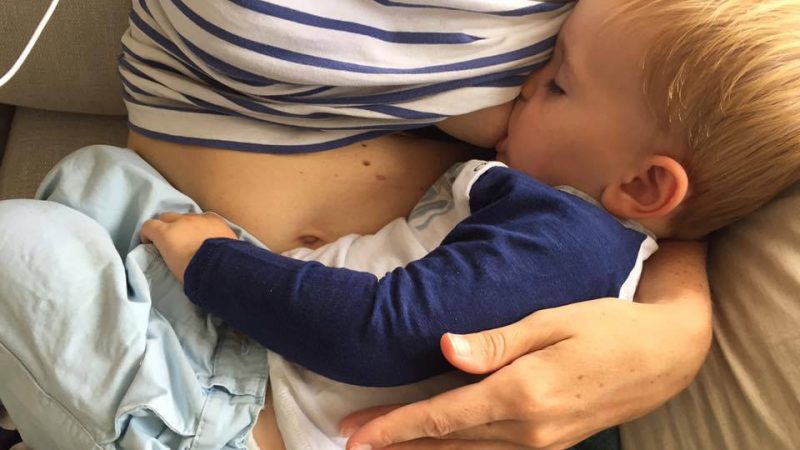
Designing the Great Feeding Survey
Mealtime Hostage Parenting Science Gang is delighted to be collaborating with Professor Jackie Blissett (Aston) and Dr Terry Dovey (Brunel) in a research project looking at feeding disorders. But what exactly do we want to find out and how will we do that?
In our chat this week we talked about some of the suggestions made by Terry and Jackie and discussed our ideas for the focus of our research.
Image: Aaron Burden
Jackie: We now have an opportunity to design a piece of research as a team!
When Terry and I talked with you, there were a number of themes and questions that came up which we could explore further. Previously we sent you a list of potential things we can measure with questionnaires and some potential questions we can ask – hopefully you’ve seen that, but I will also post some of that info here. We want to hear from you which of these you think will be most important and/or interesting to examine.
We can’t measure it all, because we need to be realistic about how long people can spend completing an online survey. The method has to be questionnaire based and will need to be completed online. We will have to collect some ‘demographic’ information and some information on whether or not children have any specific diagnoses.
However, the rest is pretty flexible.
Q: Who are the intended participants in this study? Just folks in the Mealtime Hostage group?
Jackie: We will be hosting the questionnaire online – so we could limit it to people who receive a specific link (i.e. your group) or we can open it up – I would generally prefer the latter.
Usually the bigger the sample, and the greater diversity of info, the better.
PSG D: Yes, I agree that a broader population would be ideal. Just thinking about the sampling logistics and how that would influence the types of questions we can try to answer. Thanks!
PSG B: We have to be specific with the responses too. I’ve had lots of people say, “oh my child is fussy too.” Whilst they’re sat eating a full family meal.
Q: Quick question… Is this questionnaire linked to the big questions that we voted on – the areas of research that we wanted to look into? I want to be useful ?
PSG L: This is the way that the group thought would be best to explore bits of those questions. We found that lots of them were covered by existing research, and some of them were way too complicated for us to deal with as they needed a clinical setting.
So by working with Jackie and Terry we could examine aspects of our big questions and use their expertise to ensure that we ended up with something that was meaningful – that would either help answer one of the questions or inform future research that would manage that.
This questionnaire is how we are going to get information from families about their situation. That information plus our analysis of it is our research. Hopefully at the end we will have something new to say about feeding disorders.
PSG B: Perfect. Thanks. I must have missed that conversation. It’s straight in my head now x
PSG L: No worries – there’s a lot going on. I think what we have discovered so far is that social science is difficult (no surprises there), but that there are good ways of looking into our interests, we just need some experts to help us find those ways. And those methods aren’t always obvious to us from the start. It’s fascinating!
Jackie: How would you all like to proceed? We could start with ‘what are the interesting and important questions’? Or, ‘what are the factors that we can reliably measure?’
Q: One of the things that has come up again and again in the group is asking about sensory issues. I think that for lots of people, getting a better understanding of how these are linked to eating is really interesting and important.
Jackie: So we can measure: ‘How sensitive is your child to stimuli in the environment?’ This will help us answer questions such as:
- Does your child have a low response to social stimulation?
- Does your child have a low response to stimulation?
- Does your child have a high response to social stimulation?
- Does your child have a high response to stimulation?
PSG L: When you say we can measure “how sensitive is your child to stimuli in the environment?”, I take it that this isn’t the question we ask. I guess we have a series of more precise questions that lead to us being able to reach a measure of that general question. Is that right?
Jackie: Yes that’s right. So the items we ask parents of that measure are things like:
- Seeks ‘rough-house’ play
- Does not respond to pain
- Gets distressed when grooming
- Avoids foods taste/textures
PSG D: I think something that seeks to explore the link between sensory symptoms and type of feeding symptoms would be interesting.
PSG E: We are definitely interested in sensory experiences and their links to eating
PSG F: Yes, totally. Terry mentioned the common issue of teeth brushing and eating issues which is really interesting.
PSG G: Yes, textures would be interesting
Jackie: So the kinds of research questions that we might be able to answer are:
- Are children who are more sensitive to stimuli particularly challenging to feed?
- Which sensory characteristics are most strongly associated with poorer feeding/eating?
- Which sensory characteristics are more common in children with ARFID?
PSG A: I think there are some pretty standard sensory assessment questions. I know I had to complete something similar for my son’s OT evaluation.
Jackie: Yes there are. I should say actually that all the measures that we are proposing to use are validated measures, so we will have confidence that they are measuring what we intend them to measure.
PSG H: Could we list a variety of sensory issues and measure them on something like a likert scale. These could then be cross referenced with various feeding difficulties.
Jackie: Yes we would measure the sensory factors with a standardised measure, and then we have a number of options in terms of analysis. We can correlate (i.e. look at the relationship between) scores on sensory factors and scores on feeding questionnaires. Or we can compare groups (e.g. ARFID vs. not diagnosed with ARFID) etc.
Q: Jackie, are there validated questionnaires that characterize feeding difficulties in more detail than just bad vs good? E.g., limited variety vs limited volume vs avoids novel foods vs avoids certain textures etc
Jackie: Yes there are. In fact this is a very important question for you all as a group – we can measure ‘whether or not the child is likely to have a clinically significant feeding disorder’, we can measure ‘neophobia’ (so just focussed on children’s reluctance to eat new foods) and we can also measure ‘What is your child’s appetite and general eating behaviour like?’.
All of these things might be important but equally we might decide we don’t want to look at them all.
PSG D: Thanks, that’s interesting. My thinking was that rather than just asking if sensory symptoms correlated with feeding symptoms, ask *what* feeding symptoms are correlated with sensory symptoms.
Q: I’d be interested in general comorbidity.
Jackie: Can you tell me more about that? Do you mean, with other behaviour problems or disorders?
PSG A: Yes, any other diagnoses. Anxiety (specific or non-specific), developmental delays or disorders, ASD, tongue tie, etc.
PSG D: Are you thinking “medical” diagnoses as well, like GI, cardiac, etc?
Jackie: One of the things we will need to do is to list other diagnoses that the child has.
This is likely to be more of a ‘descriptor’ for the sample rather than a way of looking at differences though. We will need to keep this brief because we cannot measure everything- and statistical analysis between multiple subgroups won’t be possible without extremely large samples.
PSG A: Right, totally understand. I guess if we are looking at neophobia, it would be useful to know if there’s also a history of other anxiety. Probably less necessary for appetite issues. It seems to me that there are 2 distinct groups there, which I think complicates the ARFID diagnosis.
Q: Another area that the group has always been interested in is the broader behaviour of a child – specifically their anxiety levels.
It seems to me that this might be much harder to measure using a parent-reporting method, as anxiety and feelings about other children and situations are often not easily shared with parents.
How easy might it be to understand anxiety within the broader behaviours?
PSG D: There are parent-facing questionnaires to assess anxiety levels and subtypes. Don’t know how they compare with patient-facing questionnaires in terms of validity, though. Here’s one: http://www.midss.org/sites/default/files/scaredparent1.pdf
Jackie: It is true that it is not easy to measure children’s emotional states indirectly.
However, one of the measures we could use is called the strengths and difficulties questionnaire. using this we can measure: Does your child have:
- emotional symptoms?
- conduct problems?
- hyperactivity/inattention?
- peer problems?
- engage in prosocial behaviour?
I should also say that this is a very widely used measure for child anxiety so if this is something you want to measure this would be good.
Q: I’m interested in food allergies and if early unfound allergies can result in later food avoidance and neophobia.
Jackie: We can ask about the history of food allergy, though like the other issues above, unless we get a large sample of people who have a food allergy we won’t be able to compare groups.
However we can list it in the questionnaire as a descriptor so we can look (for example) at the percentage of families who report this.
PSG I: There is some data on this already about 1/3 of the non-IgE (Immunoglobulin E) mediated population in particular. I’ve a MSc in Allergy so can help on that front if needed.
PSG B: Sure, it only needs to be a question (or even an option within another question) to enable us to see any correlations.
PSG I: Carina Venter has some excellent publications on reported allergy vs actual proven rate. We recognise feeding problems as part of the history but more often than not allergy is perceived and without challenge, not proven. The issue being challenges are generally few and far between.
Jackie: Its a tricky one to measure in this context too.
PSG I: I know, it’s a mine field… I spend more time put foods back in than taking out!
Q: Prematurity, even late pre-terms, seem to have more issues than the general population. Should we ask a simple question about gestation/NICU or SCBU and ventilation/tube feeding??
Jackie: True. Again this is something we can collect as a sample descriptor perhaps, rather than making the study about comparing prem/NICU babies to others.
PSG I: Yes. It would be useful it’s a common trend in early weaning problems I see in clinic.
Q: Jackie, am I right in thinking that we don’t need to come up with the questions that we want to ask on the questionnaire?
That what we need to come up with is a research question that we want answering and then we use the pre-written, validated sets of questions in our survey to answer our research question?
Jackie: Absolutely right.
Indeed the questions for parents will come from already tested measures. The exception to this is the ‘demographic/descriptor’ section where we will ask parents about the general info such as the issues raised above (prematurity, other diagnosis).
Q: Jackie, as someone who knows all of this literature way better than we do, where do you see the major gaps in knowledge that you think we could help to address?
I don’t know to what extent the sensory processing connection has or has not already been explored. Are there other areas– or perhaps more narrow areas– that you’d like to focus on?
Jackie: So many things would be interesting! But we can’t answer them all.
I do think looking at the range of feeding difficulties in the sample, and comparing ARFID cases to non-ARFID cases would be useful in terms of sensory processing, and indeed anxiety.
- How many children in the sample would reach the criteria for a feeding disorder? Of those children, how many have a diagnosis and how many have sought help for their feeding problem?
- Are more sociable children easier to feed?
- In this group, do feeding problems relate more strongly to neophobia, appetite or sensory issues, or a combination of these? IS this different for ARFID vs non-ARFID?
PSG D: Oh, I’d be really interested in learning what diagnoses are given to which kids and if those “official” diagnoses align with the parent-reported symptoms. I’d guess, for example, that diagnoses like ARFID or feeding disorder don’t end up on charts nearly as often as more objective diagnoses like “failure to thrive”.
Jackie: I think that is a very interesting question – and will also likely be affected by geography, the kind of health service you have, etc.
PSG D: Yes, I was actually just thinking that between this thread and the one below we’ve now got two ideas related to health services research. Maybe something we could look at is the care that these kids are actually receiving. Wouldn’t be a representative sample, of course, but if we can characterize our sample well enough we can look at within-sample trends and correlations. For example:
What diagnoses are received and by which patients?
- Are diagnoses truly driven by symptoms, or are they also driven by location, billing/insurance types, etc?
- What treatments are suggested?
- What treatments are actually used?
- What predicts these treatment paths? Is it really determined just by the symptoms of the patients, or is it also confounded by things like access to care?
Q: So how we combine the different measures that you and Terry suggested could give us different sorts of information. Is that right?
If we asked questions about feeding difficulties and broader behaviour (inc anxiety) and sensory issues, we might be able to find a correlation between anxious children who had a severe reaction to loud noises and sever feeding disorders.
Or we might find that anxiousness was more strongly related to eating disorders than sensory issues.
Jackie: Yes, with that kind of data on children we can look at relationships between each of the factors (e.g. how related are anxiety and sensory and feeding issues) but then also we can look at some more complex models such as which aspects of sensory processing and anxiety best predict severity of feeding difficulties, for example.
PSG A: Yes, I like that. I would like to include an age of onset question. Maybe this is a descriptor question, but I’m interested if age of onset is predictive of severity as well.
Jackie: That’s a very good point, we should definitely have that in!
PSG I: Parenting style?
Jackie: I think parenting is very important in feeding – indeed much of my research is on that – BUT I think that might be a step or two further on- once we characterise the problems more thoroughly and look at the feeding practices perhaps.
PSG I: Yes but an important part when it comes managing feeding problems.
PSG L: I think that making sense of the different levels of severity of feeding difficulties in terms of another variable (sensory issues/anxiety/something else), would be really interesting.
Much of what we have read is all ARFID or not ARFID, Not much that looks at the whole spectrum.
PSG A: And I think we also need to differentiate between the 2 subgroups of feeding difficulties: low appetite typical variety vs. typical appetite low variety.
PSG J: I totally agree. Some kids have physiological trouble with eating and some do not.
PSG A (added later!): I know we’re done, but I just want to write this out so I don’t forget. For each question, we need a data point for each ARFID subgroup (maybe Type 1 and Type 2?) and a control non-ARFID group.
Q: Are we more interested in looking for causation/comorbidity (like sensory processing, anxiety, etc.) or types of therapy that have been tried and relative success rate? I’m guessing the latter is something we would love, ideally, but is not particularly feasible in a study like this.
PSG K: I imagine it would be very hard to quantify a success rate – what constitutes success might be different for everyone?
Jackie: True! in fact what we will be able to conclude from this study will not even be about causation – all we will be able to say is that Factor X is related to Factor Y – as we aren’t doing any follow up studies or interventions.
HOWEVER that doesn’t mean its not worth doing. Its the first step on the road to intervention studies or studies that look in more depth at potential contributory factors.
PSG L: We could look at what methods families tend to choose, or maybe don’t choose. If we found that loads of families dealing with ARFID kept using a certain method that could really inform future research.
Jackie: I agree!
PSG J: And I have yet to find a doctor or therapist who knows what to do.
Jackie: It would be great to provide a guide to therapies, – but not really possible with the time and resource we have!
But we could look at the kinds of feeding practices parents commonly use and how these differ depending on severity of feeding difficulties, for example. Again that won’t give us ideas about cause and effect, only relationships.
PSG J: Right I get it. I’m just hoping that whatever we do can help inform parents and experts so that we can try to identify some helpful methods.
Jackie: I agree – and of course this project cannot answer all your questions but could be a first step to further projects.
PSG J: I am a researcher too, (PhD candidate working on my dissertation). It’s hard to take off my parent hat and put on my researcher hat 🙂
PSG A: I think anything that helps us better define the condition is useful. I know one of the issues at the moment in the US is that SPD (Sensory Processing Disorder ) doesn’t exist as a diagnosis and ARFID is viewed as a strictly psychological condition. This makes finding health care providers challenging. Not to mention, most don’t really know what it is in the first place.
Q: I don’t feel like I have a handle on what we might get from the feeding practices aspect. Because very often what parents do is based on random things. So whether they use practice A or B might come down to what their parents did, or what a trusted friend suggested rather than something that relates directly to their child.
Can you give us an example of a hypothesis (idea that we want to prove or disprove) that would use a measure of feeding practices?
Jackie: One thing that we see in less severe difficulties is that a healthy food environment (e.g. parent modelling veg intake) is associated with better eating.
However in severe feeding problems, is that the case? I would suspect we might see that the relationship between healthy food environment and feeding outcome might be moderated by sensory factors – we showed something similar in a community sample a few years ago (but not in ARFID cases).
And by moderated I should explain – for example it may be that if you eat healthily and your child is low in sensory sensitivity all is well. But if you eat healthily and your child is high in sensory sensitivity, it does not have the same positive effect.
PSG A: Well, that’s our house! Haha! Sample size = 1.
Q: Are we thinking of including the Division of Responsibility way of feeding children in our research? Does finding out about who uses this come into the feeding practices measure?
Jackie: The feeding practice measure we propose can measure a number of things (we don’t have to use them all)
- How much is your child in control of meals?
- Do you use food to help change your child’s emotions?
- How much do you promote the consumption of varied foods and healthy food choices?
- Do you make healthy foods available in the home?
- Do you use food as a reward for child behaviour?
- How involved is your child in meal planning and preparation?
- Do you actively demonstrate healthy eating for your child?
- Do you keep track of your child’s intake of less healthy foods?
- Do you encourage your child to consume more food at meals?
- Do you control your child’s food intake with the purpose of limiting less healthy foods and sweets?
- Do you control your child’s food intake with the purpose of decreasing or maintaining their weight?
- Do you teach your children about nutrition to encourage them to eat healthy foods?
PSG K: This would seem an obvious question seeing as we are all approaching the questionnaire via mealtime hostage.
However you would have to see the larger picture – one parent may do DOR, but the other parent may be doing something very different on a regular basis, also other caregivers/relatives may have different approaches too. I suppose you would need to ask what percentage of meals are served DOR style.
Q: I’m guessing that we can’t ask the questions from all the different measures (question groups) because that would be a really, really, really long survey that no-one would ever get to the end of?
Jackie: Well, it would be reeeeeaaaaalllllyyyy long. We do have to be realistic – most parents would stop after about 20 mins. In my experience that probably means we should probably be thinking of a max of 5 of the measures we proposed (with all the descriptive stuff too).
PSG: My friends, we’ve 5 minutes left of this session. We’ve learnt a lot and I feel that we understand our options a lot better.
But we still need to decide what measures (sets of questions) we want to use – what different aspects of this massive field we want to combine.
So how should we move on from here?
Jackie & Terry have suggested 7 different measures of which they recommend that we choose no more than 5. Should we discuss this in the main group and then come back to J&T with our thoughts?
Or something else?
PSG J: That seems like a good plan
Jackie: A big thank you to everyone. It is so important for us to get your views from the ‘front line’! It would be great if you can get back to us with a summary of your thoughts and priorities. We will no doubt have more conversations, but I feel like we made a great start here!
General chorus: Thank you, Jackie!
Inspired? Why not find out more about the research into feeding disorders in our other Q&A sessions:
- Researching Avoidant/Restrictive Food Intake Disorder (ARFID) with Dr Terry Dovey
- Extreme Picky Eating with Jenny McGlothlin
- Fussy Eating with Dr Claire Farrow.
You can read all our Q&A sessions, on loads of different parenting-related subjects on the website.


